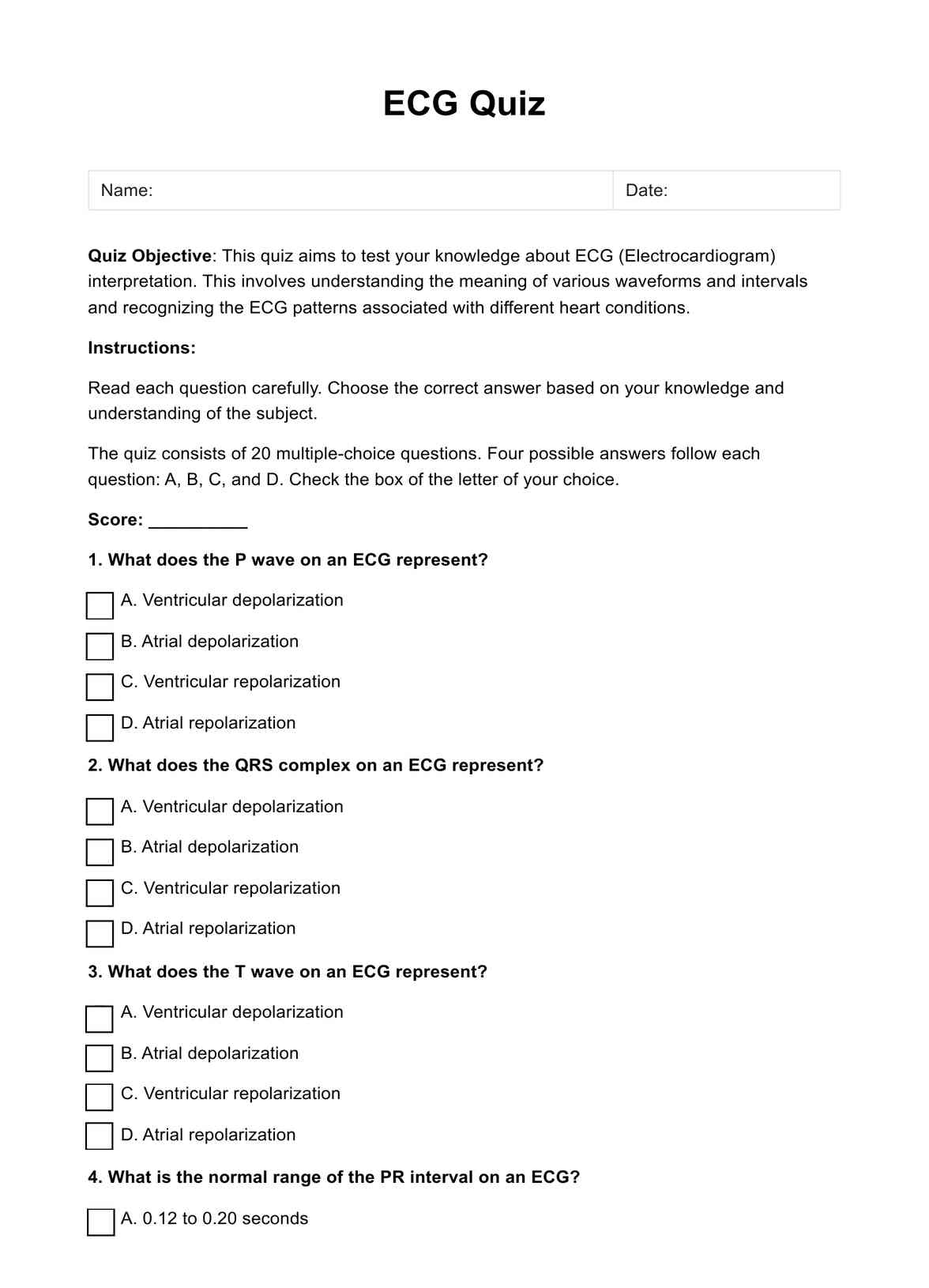In ECG quizzes, atrial fibrillation may be identified by the absence of distinct P waves, an irregularly irregular rhythm, and a narrow QRS complex. The quizzes often challenge learners to differentiate it from other rhythms like atrial flutter or sinus tachycardia, emphasizing the importance of recognizing irregular R-R intervals and the lack of consistent atrial activity.

ECG Quiz
Ace your ECG interpretation skills with our interactive ECG Quiz. Perfect for beginners and experts. Free PDF download available.
ECG Quiz Template
Commonly asked questions
ECG quizzes often include tracings showing left ventricular hypertrophy, which can be identified by a dominant R wave in lead V5 or V6 and an S wave in V1, and right ventricular hypertrophy, characterized by a dominant R wave in V1. They teach how to spot these patterns and understand their clinical significance, such as the risk of sudden death or cardiac arrest in severe cases.
Yes, ECG quizzes are particularly useful in learning to recognize complex conditions. For bundle branch block, they might present a widened QRS complex with specific morphologies in V1 and V6. For ventricular tachycardia, the quizzes often show a wide complex tachycardia and challenge the learner to distinguish it from other causes of tachycardia, like SVT with aberrancy or pre-excitation syndromes like WPW syndrome.
EHR and practice management software
Get started for free
*No credit card required
Free
$0/usd
Unlimited clients
Telehealth
1GB of storage
Client portal text
Automated billing and online payments











